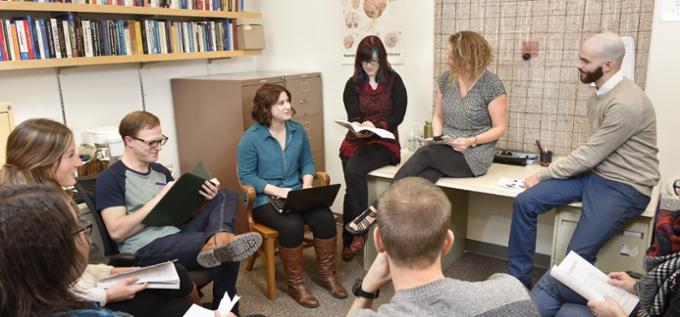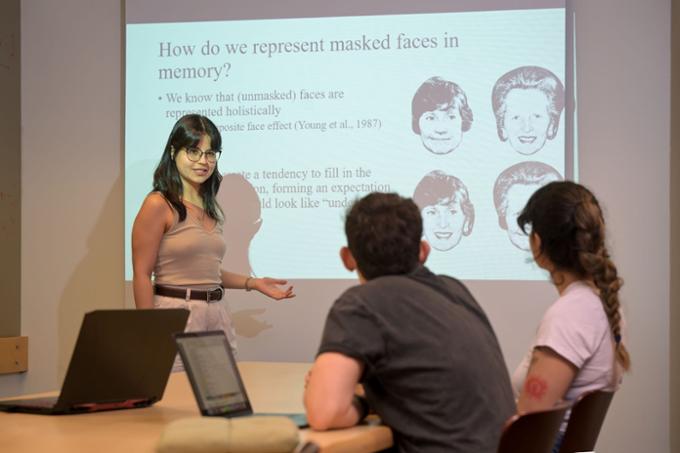
Experimental and Applied Psychology Graduate Program
Overview
The Experimental and Applied Psychology (EAP) programme is designed to train psychologists who will work in either academic settings or as researchers in industry or the public sector. Students in the EAP programme have the opportunity to specialize in Cognitive, Developmental, Forensic, Social, or Theoretical Psychology, or in Neuroscience..
Orientation
The EAP programme focuses on training students to become independent researchers who are capable of carrying out high quality, high impact research. Faculty in the EAP programme have research interests that address both basic questions of global importance and applied problems that impact our community, our province, and our country. To this end, student training takes place in traditional laboratory settings as well as in nonacademic community settings, such as in hospitals, schools, and law enforcement agencies. A key component of the EAP programme is strong mentorship, with students working closely with their supervisors at every stage of the development and implementation of research projects. Students also have opportunities to work with researchers in areas outside of their immediate area of specialization, and collaboration is encouraged. As part of their training, students are encouraged to present their findings at research conferences both at the University of Regina and around the globe. To this end, the Faculty of Graduate Studies provides travel awards on a competitive basis, in three competitions each year
Research Areas
Program Details
Students in the EAP program complete courses in research methods, statistics, ethics, and courses relevant to their thesis research, as well as courses in other areas of interest to the student. Both M.Sc. and Ph.D. candidates complete thesis research, developed in consultation with the student’s supervisor and a thesis committee. Following acceptance of a thesis by the student’s thesis committee, an oral examination (defense) will be held. Doctoral candidates are also required to complete a comprehensive examination. The format of the comprehensive examination is flexible, with students able to choose from among several options including writing a mock research grant proposal, completing a research practicum with a community partner, or developing a new course, as best meets the career objectives of the student. M.Sc. students typically complete their program of study in two years; Ph.D. students typically complete their program of study in three years.
The courses required for the M.Sc. and Ph.D. degrees are as follows:
M.Sc.
Course |
Credit Hours |
| PSYC 801 Research Design and Methodology in Psychology | 3 credit hours |
| PSYC 807 Research and Applied Ethics | 3 credit hours |
| PSYC 802 Applied Multivariate Statistics or PSYC 805 Experimental Design and Analysis of Variance |
3 credit hours |
| One additional PSYC course | 3 credit hours |
| PSYC 900 Graduate Seminar in Psychology | 2 credit hours |
| PSYC 901 Thesis Research | 16 credit hours |
| Total: 30 credit hours |
Ph.D.
Course |
Credit Hours |
| PSYC 800 History, Theory and System in Psychology | 3 credit hours |
| Three additional PSYC courses | 9 credit hours |
| PSYC 901 Thesis Research | 48 credit hours |
| PSYC 865-EA Comprehensive Examination | 1 credit hour |
| Total: 61 credit hours |
